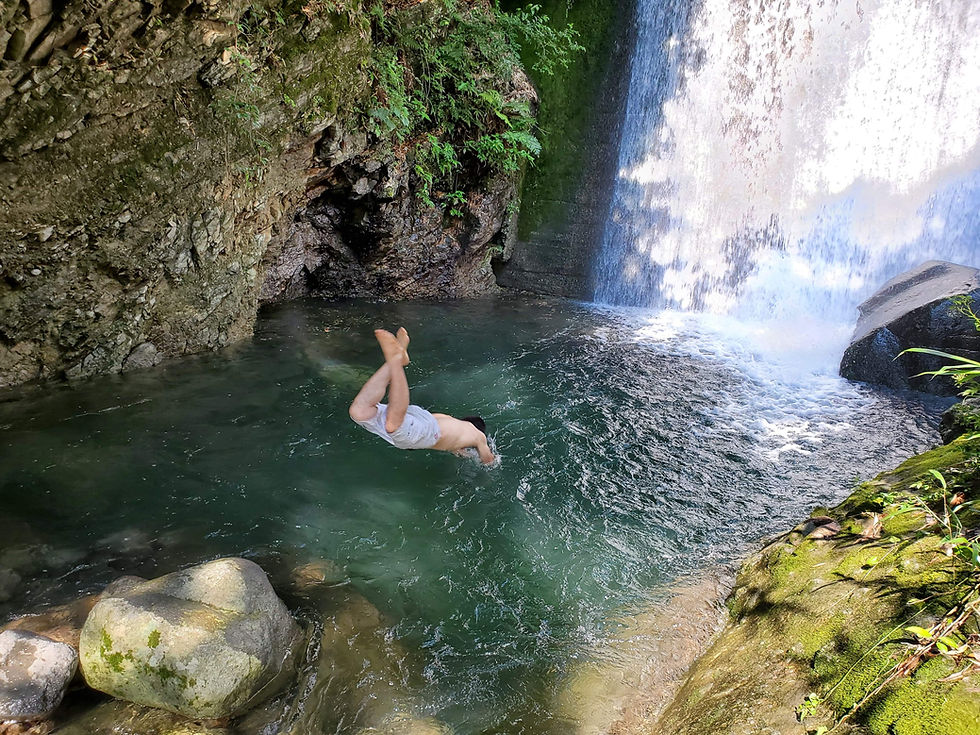Why Do So Many Foreign Travelers Visit Our Remote Japanese Guesthouse During Golden Week?
- Jiro Sakamoto

- May 1, 2025
- 3 min read

Hello, this is Jiro, from Sky Tea House.
During Golden Week, something curious and mistery always happens here at our guesthouse. Even though it's Japan’s major holiday season, the place fills up almost entirely with foreign travelers—not Japanese guests.
You might wonder, “Why?”Golden Week is typically when Japanese people travel en masse. Tourist spots are packed, and accommodations are usually fully booked. (Right? Or has that trend started to shift?)
So it’s quite a mystery why foreigners would choose to come to our remote countryside guesthouse at this exact time.
For the record, our guesthouse was never aggressively targeting inbound tourists. In the past, our guests were about half Japanese and half foreign. During COVID, it was naturally all domestic, but ever since the pandemic ended, we've seen a noticeable increase in foreign guests.
If it were simply a matter of "overflow from fully-booked accommodations," we’d expect to see a rush during big events in Fukuoka or more visitors who come after visiting Kurogi’s famous wisteria. But strangely, that's not the case either.
As I talk with these international guests, I start to get a clearer picture.
Mainstream tourist destinations tend to get crowded. And for them, the logic isn't about Fukuoka being a city, Dazaifu or Yanagawa being touristy, and Yame being the countryside.
They see Tokyo and Osaka as overcrowded tourist hubs, and places like Kyushu—especially the mountainous regions—are perceived as rural, off-the-beaten-path.
That’s exactly what seasoned travelers are after: the "true Japan," untouched and tranquil. These guests, well-traveled and selective, are drawn to places like Sky Tea House where they can experience serene landscapes, simplicity, and genuine interaction with locals.
Ask any foreign traveler who's been to Japan where they've gone, and it’s almost always: Tokyo, Kyoto, Osaka... maybe Mount Fuji.
Those who make it to Kyushu are usually repeat visitors, or people seeking hidden gems away from tourist crowds. This already filters down the type of guest significantly.
And our guests? They’re the "travel connoisseurs"—those who skip the guidebook and prefer unlisted treasures. They value quietude, authenticity, and heartfelt encounters over convenience.
Think of Kyushu like Scotland, Yunnan (China), Andalucía (Spain), Michoacán (Mexico), or Mae Hong Son (Thailand). These are regions brimming with natural beauty and proud local culture—yet not frequented by first-timers. That’s the kind of “edge-of-the-world” appeal Kyushu offers.
Here’s another interesting observation:
People often say, “Japanese guests are polite; Chinese guests have poor manners.”But from my actual experience, it’s the complete opposite.
at least in my place, The most respectful, appreciative, and generous guests tend to be from China. On the other hand, some Japanese guests, sadly, can be demanding or lack consideration for our way of hosting.
Of course, every person is different. Maybe it’s just that the kind of Chinese guests who end up at our place have already passed through a pretty strong filter.
because of most of them are just in the city or touristic sights, and even cannot apply international license to explore the rural area.
After all, the sheer number of Chinese travelers to Japan is huge—but only a handful find their way to us.
That says something.
So, if I were to rank guests by nationality:
Easiest and most pleasant guests? → Chinese
Guests I have to stay most alert with? → Japanese
This really goes to show how unreliable stereotypes can be. Every place is different, every guesthouse has its own vibe.
And ours? Sky Tea House is definitely an outlier in the world of accommodations.
When I ask these guests, “Why did you choose to come here during Golden Week?”They always say something like:
“I thought I’d meet good people here, and it didn’t feel touristy—I thought I could see the real Japan.”
Thanks to these thoughtful travelers, we are still here, still surviving.




Comments